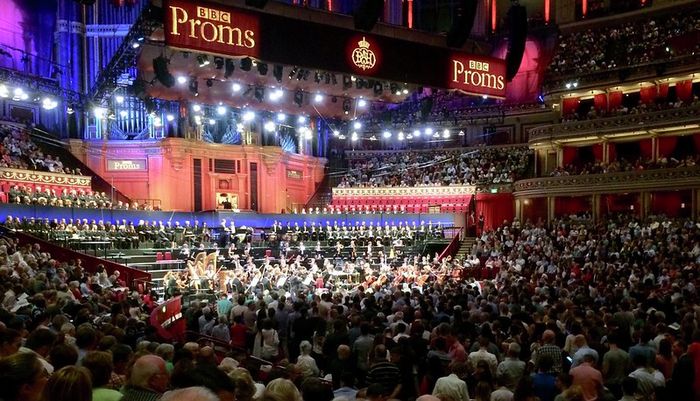Grammy award-winning pianist Emanuel Ax performs in Cambridge
The concert, organised by Camerata Musica, was a memorable and captivating experience

On the evening of November 30th, Cambridge was graced with the presence of a most famous person. I am certainly not referring to the appearance of Jeremy Hunt at the Union, but to the celebrated pianist Emanuel Ax, who delivered a programme of Beethoven sonatas and pieces by Arnold Schönberg at West Road Concert Hall. Born to Jewish Polish parents, who survived the horrors of the Holocaust in present-day Ukraine, Ax moved to North America at a young age. His professional career, blossoming in the 1970s, has since led him to some of the most esteemed concert halls in the world. It was therefore all the more gripping to see him play in the comparably intimate setting of West Road.
He opened with Beethoven’s famous ‘Sonata Pathétique’, written while the composer was coming to terms with his gradually declining hearing. Outbursts of rage and passion repeatedly disrupt the mournful tranquillity of the piece’s most memorable theme. Not only do we sense the immense force of expression that Beethoven managed to inject into his music, but also a digression from the graceful and rigorously organised Classical style of his time.
“Ax showed his audience how much Schönberg and Beethoven have in common”
Next, Ax pulled out a little score to perform Schönberg’s ‘Three Piano Pieces’ from 1909, demonstrating their complexity even for a professional pianist. Schönberg is widely considered to be the pioneer of 12-tone or atonal music, which abandoned the traditional concepts of harmony to produce a sound that often seems harsh and dissonant. Although this style of the so-called Second Viennese School, the first one encompassing Haydn, Mozart and Beethoven, might appear incompatible with the first, Ax showed his audience how much Schönberg and Beethoven have in common. The search for greater means of expression and a radical renunciation of the dominant musical traditions of their time are inherent in both their music.
This said, the following two items on the programme presented both composers at a much younger stage of their creative journeys. Beethoven’s second sonata was dedicated to his former tutor Haydn, the father of Viennese Classicism, and despite hints of the composer’s capricious and improvisational nature, it is very much indebted to that neat Classical tradition. Likewise, Schönberg’s earlier ‘Three Piano Pieces’ from 1894 owe much to the musician’s idol, Brahms, and are reminiscent of his grave and luscious Late Romantic style, even if they are already attempting to flee and abstract themselves from it with their evaporating brevity.
“His grief is expressed in slow, disconnected and sombre sound clusters”
After this retrospective, Ax concluded with a demonstration of what these inventive minds helped music to become. Working his way through another copy of Schönberg’s ‘Six Little Piano Pieces’ from 1911, he exhibited all the intricate tension within those disharmonic and seemingly erroneous fragments. By this point in his life, Schönberg had developed a clear theoretical framework for abstracting music from harmony. Such ideas fully come to life through these pieces, the sixth of which was written a little later after one of his role models – Gustav Mahler – died. His grief is expressed in slow, disconnected and sombre sound clusters that, without a tonal centre, lead into nothingness.
This epitome of Schönbergian composing was then counterbalanced by the concert’s grand finale: Beethoven’s ‘Appassionata’. Here it is less pathetic sorrow but mighty passion that pervades the music. And Ax, who had been behaving in the diligent and dignified manner of a rather elderly man, now hammered out the heroic greatness of Beethoven’s eager and restless temper. The sonata’s bombastic, fast and trembling last movement enraptured the audience, lifting them from their seats for a never-ending storm of applause. Naturally, the stirred-up audience would not have let the maestro leave without the lullabying double encore of a nocturne by Chopin and Schubert’s ‘Ständchen’.
The concert was a memorable and captivating experience, which, thanks to Camerata Musica, was entirely free for students. To have access to such world-class musicians is an unmissable opportunity, so I strongly advise everyone to look out for the many performances to come!
 Music / The pipes are calling: the life of a Cambridge Organ Scholar25 April 2025
Music / The pipes are calling: the life of a Cambridge Organ Scholar25 April 2025 News / Candidates clash over Chancellorship25 April 2025
News / Candidates clash over Chancellorship25 April 2025 Interviews / Dr Ally Louks on going viral for all the wrong reasons25 April 2025
Interviews / Dr Ally Louks on going viral for all the wrong reasons25 April 2025 Comment / Cambridge builds up the housing crisis25 April 2025
Comment / Cambridge builds up the housing crisis25 April 2025 News / Cambridge professor paid over $1 million for FBI intel since 199125 April 2025
News / Cambridge professor paid over $1 million for FBI intel since 199125 April 2025






